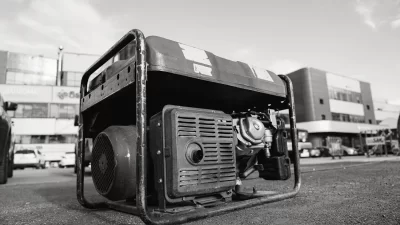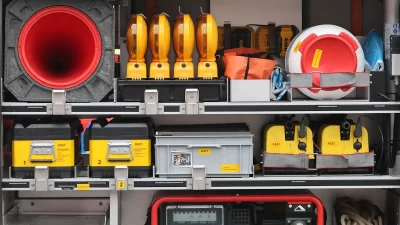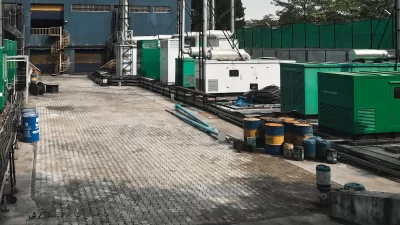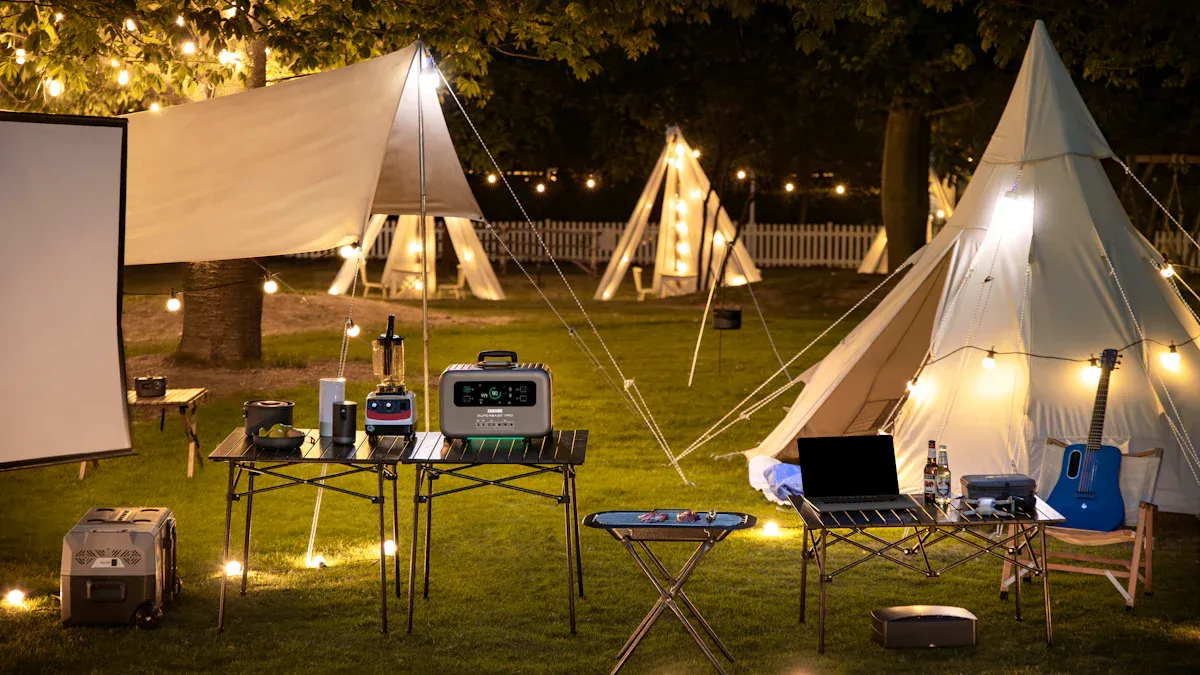
Thinking about bringing power to your campsite or job site without all the noise? Used Silent Generators might be just what you need. Many quiet models run at 50-70 dB, making them up to 75% quieter than regular generators. You can power tools or appliances for hours—some even last 10 to 14 hours on a single tank. These generators save you money, too, especially when you buy used. Just remember, you might see some wear or miss out on a full warranty. Make sure you choose a generator that matches your power needs and fits your plans.
Key Takeaways
Used silent generators offer quiet power, running as low as normal conversation noise, making them perfect for peaceful camping and work sites.
Buying used saves money and helps the environment by reducing waste and fuel use, while still providing reliable power from trusted brands.
Choose a generator that matches your power needs, runs quietly below 60 decibels, and is easy to carry or move to fit your camping or job site.
Always check the generator’s condition, maintenance history, and any remaining warranty before buying to ensure long-lasting and safe use.
Follow safety tips like running the generator outdoors and performing regular maintenance to keep it working well and protect yourself.
What Are Silent Generators?
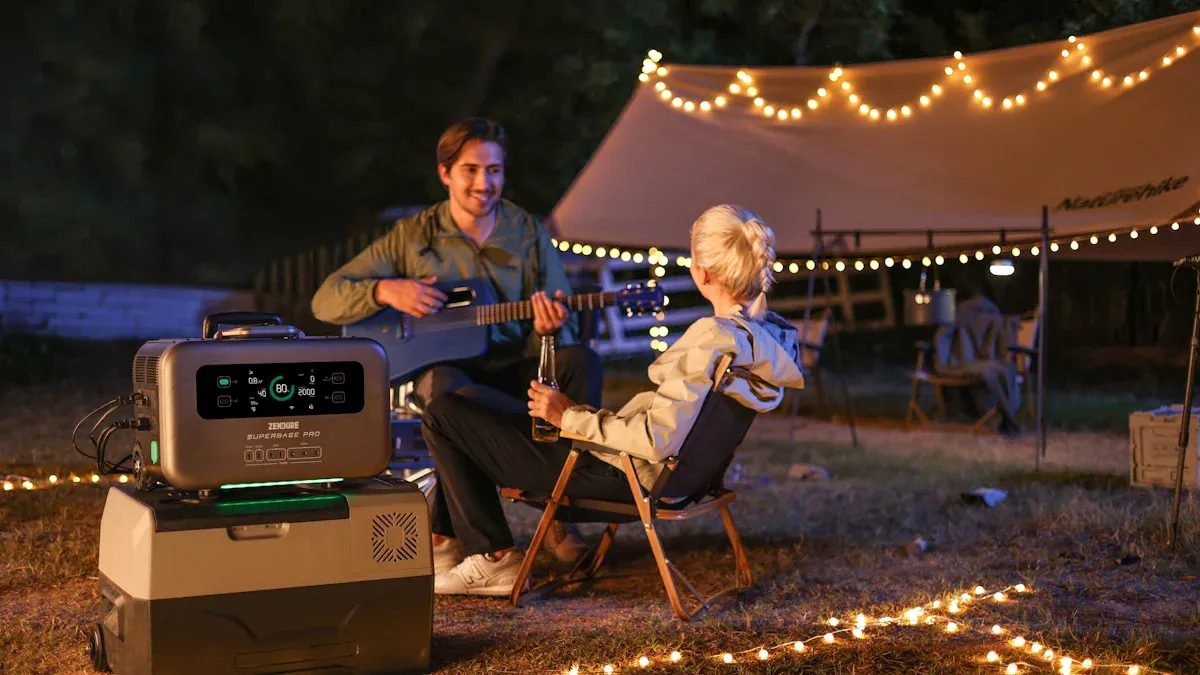
Definition
You might wonder what makes a generator “silent.” A silent generator is a machine that produces electricity with much less noise than a regular generator. Most silent generators use special soundproof covers and advanced engine technology. These features help keep the noise level low, often between 48 and 65 decibels. That’s about as loud as a normal conversation or a running refrigerator.
Here’s what sets silent generators apart:
Soundproof Enclosure: The generator sits inside a box that blocks and absorbs sound.
Inverter Technology: Many silent generators use inverters. This tech keeps the engine running at the lowest speed needed, which cuts down on noise.
Vibration Control: Rubber mounts and special frames reduce shaking and rattling.
You can find silent generators in many sizes. Some are small enough to carry with one hand. Others are big enough to power a whole job site.
Why Silence Matters
Noise can ruin a peaceful camping trip or make a construction site stressful. You want to enjoy nature or focus on your work, not listen to a loud engine all day.
Tip: A generator that runs quietly helps you stay friendly with neighbors at a campground or on a job site.
Here’s why you should care about noise:
Comfort: You can sleep better and relax more with less noise.
Rules: Many parks and neighborhoods have noise limits. A silent generator helps you follow these rules.
Communication: You can talk with friends or coworkers without shouting.
Choosing a silent generator means you get the power you need without the headache of loud noise. It’s a smart choice for both camping and construction.
Benefits of Used Silent Generators
Cost Savings
You probably want to save money when you buy equipment for camping or construction. Used Silent Generators help you do just that. New generators can cost a lot, but used ones often sell for much less. You can find good deals on websites like eBay, Amazon, or from equipment resellers. Many people choose used models because they still work well and have plenty of life left.
When you buy used, you can often get a higher-quality generator for the same price as a lower-end new one. This means you get better features, more power, or quieter operation without spending extra. If you only need a generator for certain trips or projects, buying used makes even more sense. You avoid paying full price for something you might not use every day.
Tip: Always check the condition and ask about the generator’s history before you buy. A little research can save you a lot of money.
Environmental Impact
Choosing Used Silent Generators is also good for the environment. When you buy used, you help reduce waste. Fewer generators end up in landfills, and fewer new ones need to be made. This saves resources and energy.
Silent generators, especially inverter types, use fuel more efficiently. They run at the speed needed for the job, so they burn less gas and make less pollution. Many models meet EPA standards, which means they release fewer harmful gases into the air. If you care about nature while camping or want to keep your job site greener, a used silent generator is a smart pick.
Quality Brands
You want a generator that lasts and works quietly. Brands like Honda, Cummins (Onan), and Generac have great reputations for making durable and reliable generators. Many people trust these brands for both camping and construction. Honda is famous for its quiet inverter generators, which often run below 65 dB at 23 feet. That’s about as loud as a normal conversation, so you won’t disturb others nearby.
Cummins and Generac are known for their tough, long-lasting machines. They work well for bigger jobs and can handle more power. Even when you buy used, these brands often keep running strong for years. The market keeps improving technology, so you can find models that balance power and quiet operation.
Note: Inverter generators are popular for camping and construction because they are quiet and easy to carry. You can find many used models from top brands at lower prices, making them a great value.
Key Considerations
Reliability
When you pick a generator, you want it to work every time you need it. Silent generators for camping and small construction jobs are known for their dependable performance. Many models run quietly, often below 60 dB, thanks to sound-dampening technology. Diesel silent generators stand out because they use fuel more efficiently—about 20-30% better than gasoline models. This means you get longer run times and save money on fuel. If you take care of your generator, especially with regular oil changes and air filter cleaning, it can last over 10,000 hours. Some models even come with safety features like carbon monoxide (CO) sensors and automatic shutoff systems. These features help keep you safe while using your generator.
Warranty
Buying used equipment often means you get less or no warranty. Some sellers might offer a short-term warranty, but it usually does not match what you get with a new generator. Always ask about any remaining warranty before you buy. If the generator is still under warranty, you get extra peace of mind. If not, check if the brand has a good reputation for reliability and if replacement parts are easy to find. This way, you can fix small problems without too much trouble.
Maintenance History
A well-maintained generator will serve you much longer. Before you buy, ask the seller for maintenance records. Look for proof of regular oil changes every 50-60 hours and air filter cleaning every 25 hours. If the generator has a clean history, you can expect it to last longer and work better. If there are no records, you might want to look for another option. A generator that has been cared for will give you fewer headaches down the road.
Power Needs
Think about what you want to run with your generator. Most portable silent generators for camping and small construction jobs range from 1000W to 3000W. This size works well for lights, small appliances, or power tools. Make a list of everything you want to plug in, then add up the wattage. Pick a generator that gives you a little more power than you need. This way, you avoid overloading it and keep everything running smoothly.
Tip: If you plan to use your generator for both camping and construction, choose a model with enough power for your biggest job.
Noise Level
Noise matters, especially in quiet places like campgrounds or residential areas. Look for generators with noise levels below 60 dB. This is about as loud as a normal conversation. Many Used Silent Generators use special covers and inverter technology to keep things quiet. If you want even less noise, you can add sound insulation or baffles around your generator. Always check the noise rating before you buy.
Portability
You want a generator that is easy to move. Many silent generators are compact and have handles or wheels. This makes them simple to carry to your campsite or job site. Check the weight and size before you buy. If you plan to move it often, pick a lighter model. Some generators are small enough to fit in your car trunk, while others need two people to lift.
Fuel Type
Generators run on different fuels. Gasoline is common, but diesel models are popular for their durability and fuel efficiency. Diesel generators often last longer and use less fuel, but they may need special modifications for quiet operation. Some models offer dual fuel options, letting you switch between gasoline and propane. This gives you more flexibility, especially if you camp in remote areas. Always check if the generator meets EPA standards for cleaner emissions. Safety features like CO sensors are also important, especially if you use the generator near people.
Note: Dual fuel and EPA-compliant models are safer and better for the environment.
Choosing Used Silent Generators
Assess Needs
Start by thinking about what you want your generator to do. Make a list of the devices or tools you plan to power. Write down how many watts each one uses. Add up the total. This helps you pick a generator with enough power. If you camp, you might only need to charge phones or run a small fridge. For construction, you may need to power saws or drills. Always choose a generator that gives you a little extra power, just in case.
Research Sources
You can find Used Silent Generators in many places. Check online marketplaces like eBay or Amazon. Local equipment resellers and outdoor stores sometimes have good deals. Ask friends or coworkers if they know anyone selling a generator. Read reviews and ratings before you buy. Look for sellers with good feedback. This helps you avoid scams or broken machines.
Tip: Trusted brands like Honda, Cummins, and Generac often last longer and run quieter.
Inspection Tips
Before you buy, take time to inspect the generator. Look for signs of rust, dents, or leaks. Ask the seller to start the generator for you. Listen for strange noises. Check the hour meter if it has one. Fewer hours usually mean less wear. Ask for maintenance records. A clean air filter and fresh oil show good care. Make sure all buttons and outlets work.
What to Check | Why It Matters |
|---|---|
Physical condition | Shows past treatment |
Noise level | Confirms quietness |
Maintenance records | Proves good care |
Power output | Matches your needs |
Price and Value
Compare prices from different sellers. Used Silent Generators cost less than new ones, but prices can vary. Look at the age, brand, and condition. Sometimes, paying a little more for a trusted brand saves money later. Think about the value, not just the price. A well-kept generator from a good brand is often a better deal than a cheap, worn-out one.
Remember, a smart buy gives you peace of mind and reliable power for years.
Usage Tips
Safety
Your safety comes first when you use a silent generator. Always set up your generator outside, far from tents, buildings, or windows. This keeps dangerous gases like carbon monoxide away from you and others. Never run a generator in a closed space. Make sure the area stays dry to avoid electric shocks. Use heavy-duty extension cords that match the generator’s power. Check for any loose wires or damaged plugs before you start.
Tip: Many generators have carbon monoxide sensors. If yours does, test it before each use.
If you want to make your generator even quieter, try using sound baffles or place it behind a barrier. This helps block extra noise and keeps your campsite or job site peaceful.
Maintenance
Taking care of your generator helps it last longer and work better. Here are some simple steps you can follow:
Check fuel and oil levels before each use. Top them off if needed.
Use the right oil, like 10W-30 or 15W-40, and keep the battery voltage between 12.6 and 14.4 volts.
Change the engine oil every 100 hours or once a year.
Clean or replace the air filter every 300 hours or when it looks dirty.
Inspect for loose wires, worn parts, or leaks. Tighten connections every six months.
Use a fuel stabilizer if you will not use the generator for more than a month.
Test the generator under load once a year to make sure it can handle your needs.
Regular care keeps your generator safe and ready whenever you need it.
Troubleshooting
Sometimes, things go wrong. If your generator will not start, check the fuel, oil, and battery first. Make sure the spark plug gap is between 0.028 and 0.032 inches. If the engine runs rough or makes strange noises, look for dirty filters or loose parts. If you see smoke or smell fuel, turn off the generator right away and check for leaks.
Problem | What to Check |
|---|---|
Won’t start | Fuel, oil, battery, spark plug |
Runs rough | Air filter, spark plug, fuel |
Makes noise | Loose parts, mounting, debris |
Smells like fuel | Leaks, fuel lines, connections |
If you cannot fix the problem, call a professional. They can help with repairs and keep your generator running safely.
Recommended Models
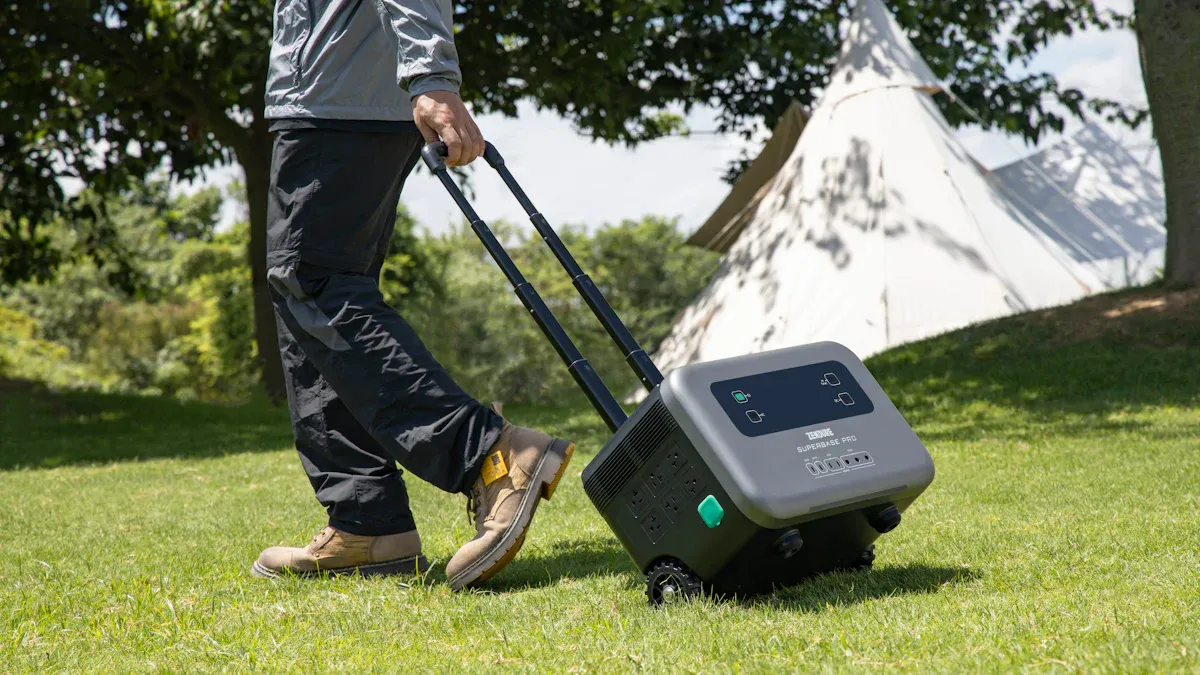
Camping Models
If you want a quiet night at your campsite, you need a generator that runs softly and packs enough power for your essentials. Many campers love inverter models because they are light, easy to carry, and super quiet. Here are some top picks you can find used:
Generator Model | Noise Level (Decibels) | Power Output (Watts) | Run Time (Hours) | Weight (lbs) | Fuel Tank Capacity (Gallons) | Special Features |
|---|---|---|---|---|---|---|
WEN 53203i | ~50 dB at 30 feet | 2000 start-up / 1700 running | ~10 at quarter load | 39 | 1 | Eco-mode, auto shut-off, altitude kit available |
Honda EU2200i | 58 dB at 20 feet | 2200 | 9.6 at quarter load | 40 | Not specified | Reliable, clean power, overload alarm, eco-mode |
Jackery Explorer 240 | Silent (battery) | Supports devices ≤ 200 watts | Solar charge in 6-7 hours | 6.6 | N/A | Solar charging, pass-through charging, USB ports |
Generac 8250 GP2500i | Similar to Honda | 2500 start-up / 1700 running | Not specified | 48 | 1.2 | Eco-mode, LED status lights, USB port |
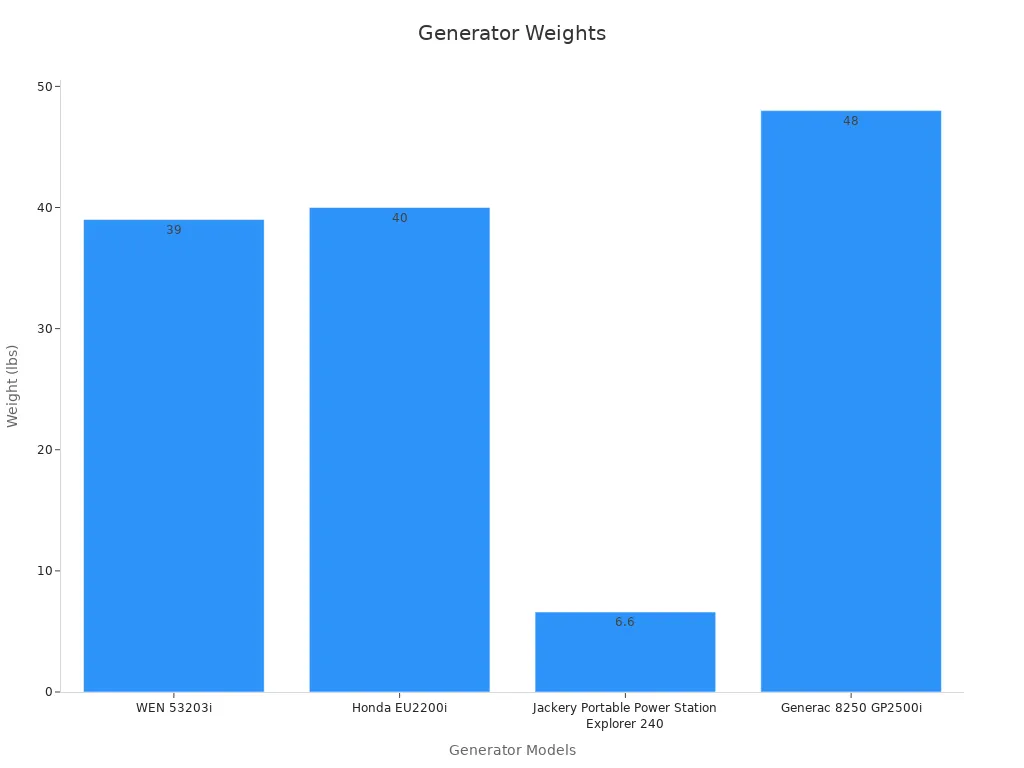
You can find these models on eBay, Amazon, or from local equipment resellers. Look for features like eco-mode, USB ports, and CO sensors for extra safety.
Construction Models
When you work on a job site, you need a generator that can handle power tools and run for hours. Used Silent Generators from brands like Cummins (Onan) and Generac are tough and reliable. Many models offer dual fuel options, so you can use gasoline or propane. Some even have CO sensors and automatic shutoff for safety.
Popular choices include the Cummins Onan P4500i and Generac GP3500iO. These models run quietly, usually below 65 dB, and provide enough power for saws, drills, and lights. You can often find them used on equipment reseller websites or online marketplaces.
Tip: Always check the noise level and run time before you buy. A quiet generator keeps your worksite peaceful and helps you follow local noise rules.
All-Purpose
Sometimes, you want a generator that works for both camping and construction. Look for models with 2000 to 3500 watts of power, wheels for easy moving, and a noise level under 65 dB. Honda and Generac make great all-purpose generators. The Honda EU3000iS, for example, is quiet, portable, and strong enough for most jobs.
You can find these all-purpose models used on Amazon, eBay, or through local resellers. Make sure to check for features like dual fuel, CO sensors, and EPA compliance. These extras make your generator safer and more flexible for any adventure or project.
Used Silent Generators can make your camping trips and job sites quieter, cheaper, and easier to manage. If you take time to check your needs and follow the tips in this guide, you can find a reliable generator that fits your budget. Remember to look for trusted brands and keep up with simple maintenance. Ready to power up your next adventure? Start your search today!
FAQ
How quiet are silent generators really?
Most silent generators run between 48 and 65 decibels. That sounds like a normal conversation or a running fridge. You can talk or relax nearby without shouting.
Can I use a used silent generator indoors?
Never use a generator indoors. Even silent models give off carbon monoxide. Always run your generator outside, away from windows, doors, and tents.
What fuel works best for camping?
Gasoline is easy to find and works well for most trips. Some generators use propane or offer dual fuel options. Propane stores longer and burns cleaner, so you might like it for camping.
How do I know if a used generator is reliable?
Check for maintenance records.
Ask the seller to start it up.
Listen for odd noises.
Look for trusted brands like Honda or Generac.
Where can I buy a used silent generator?
You can shop on eBay, Amazon, or local equipment resellers. Sometimes, outdoor stores or friends have good deals. Always read reviews and check the seller’s ratings.
